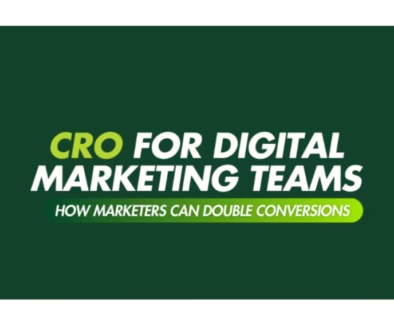Google’s new privacy policy and how will it affect Digital Marketing?
Cookies are something that a lot of digital marketers use for personalized marketing. Let us first understand what cookies exactly are.
What are third-party cookies? It is the information that allows the digital marketing firms to know the required information about targeted users such as their behavioral patterns on the web, and their interests, in an addition to the personalization of the advertisements that you see on the web. It helps digital marketers to obtain a user profile of the audience that they are targeting.
So, now on 3rd March 2020, Google announced that it will eliminate third-party cookies by 2022. This step of Google will drastically change things for all the digital marketing websites around the country, which will make things a bit difficult for digital marketers.
Google’s blog post explains its reason behind charting a course towards a more privacy-first of the web, “It’s difficult to conceive of the internet we know today — with information on every topic, in every language, at the fingertips of billions of people — without advertising as its economic foundation.
But as our industry has strived to deliver relevant ads to consumers across the web, it has created a proliferation of individual user data across thousands of companies, typically gathered through third-party cookies. This has led to an erosion of trust: In fact, 72% of people feel that almost all of what they do online is being tracked by advertisers, technology firms, or other companies”
Check – Guide To Start A Digital Marketing Business With Zero Investment
Some Interesting Statistics on Digital Marketing
According to the Statistics, as of January of 2021, Google’s Chrome global web browser market share was about 35.27 %. In the year 2019, Google had held more than 56% of the web browser market. Other popular web browsers like Firefox and Internet Explorer have experienced an excessive reduction in the market share in recent years because Chrome’s influence has expanded, which has resulted in new competitors entering the market.
If in the year 2022, the world of the internet becomes a cookie-less world the digital marketers won’t get any information about the users crawling through their website, and there will be no personalized content for them to offer.
In digital marketing will have to depend on the first-party data and will have to work extra hard for them to analyze and gather the information about the user using the websites. They will have to invest a lot more time and effort and extra labor which will not be very cost-effective and will be very time-consuming.
Furthermore, Google’s blog post also read that, “People shouldn’t have to accept being tracked across the web to get the benefits of relevant advertising. And advertisers don’t need to track individual consumers across the web to get the performance benefits of digital marketing.
The majority of marketers were somewhat expecting this to happen. It will take the digital-marketing industry to take some time to finally understand the new privacy policy of Google and how to work around it whenever it takes place.
Mentioned below are statements from some of the renowned digital marketing experts and what they have to say about this policy.
Read – Why is Online Lead Generation important for your business?
Sir Martin Sorrell who is an Executive Chairman & Founder of the S4 Capital:
“CMOs should take note that this reiterates, once again, the importance of first-party data and how consumer trust and privacy are moving to the forefront of marketing. In the coming years, digital consumer relationships will be earned by customer experience and value exchange. With Google Chrome removing support for third-party cookies by 2022, the time for marketers to start investing in the future is now.
S4Capital is guided by our belief that first-party data is the holy grail – and already has its sights on the critical next phase for marketers, where digital identity is in the hands of the brands themselves.
In 2020, we merged with leading cookieless measurement company Bright blue and readied brands like Mondelēz to leverage first-party consumer data to plan, personalize, and optimize their digital media and content. As one of our most respected clients said – Google’s decision reinforces again the importance of first-party data and that we are entering into a world of at least 25 big walled gardens. It’s a natural evolution of the privacy debate.”
Gautam Mehra who is the Chief Data & Product Officer- Dentsu Asia Pacific (APAC) & CEO – Dentsu Programmatic – South Asia:
“This was an expected announcement. Google had earlier indicated its intention to move away from individual tracking to FLoCs, a kind of cohort-based tracking that would be privacy safe and yet allow for advertisers to track the effectiveness of their campaigns and also be able to retain attributes that matter to advertisers such as the interests/profile of their consumers albeit at a “crowd” level.
However, this coupled with the expected deprecation of third-party cookie support in 2022, will be challenging for the ad-tech industry in general. Large publishers will begin to force users to sign in to consume their content.
Advertisers will have to invest largely in managing their first-party data efficiently and extracting maximum value from it, rather than relying on external signals. All in all, it is early times and we expect to see a lot more announcements in this space by various other platforms such as Facebook, Apple, Amazon, TradeDesk, Adobe, and MediaMath.”
Conclusion
Different individuals have different notions on this privacy policy. We cannot predict what’s going to happen in the future. So, as a digital marketer, you are advised not to panic right now, but you should also start formulating how your business would work after the application of the new policy.
Visit – Top digital marketing training institute in pune for your career growth.



